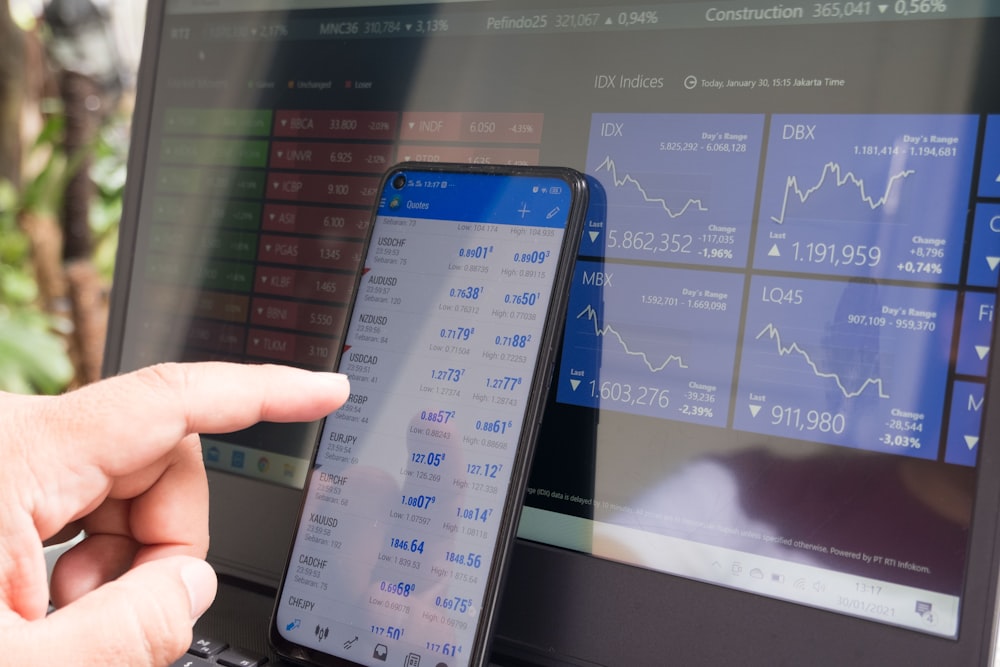The Inflow Of Funds Into Global Funds Indicates That Investors Expect Further Growth Of Indices
Image Source: Unsplash
At the close of the stock market on Friday, the Dow Jones Index (US30) increased by 0.33% (+1.22% for the week), while the S&P 500 Index (US500) added 0.06% (+1.10% for the week). The Nasdaq Technology Index (US100) closed Friday negative by 0.11% (+1.06% for the week).
Economic news from the US had a negative impact on the dollar on Friday after S&P reported that activity in the US manufacturing sector contracted more than expected in November, but activity in the service sector increased more than expected in November. The S&P US Manufacturing PMI for November fell by 0.6 to 49.4, weaker than expectations of 49.9. However, the Services PMI for November unexpectedly rose by 0.2 to a 4-month high of 50.8, which was better than expectations of a decline to 50.3. The dollar's 0.52% decline provided indirect support for the stock. But Nvidia's (NVDA) drop on Friday had a negative impact on the broad technology sector. The company told customers in China that it is delaying the launch of a new artificial intelligence chip until the first quarter of next year. Apple's stock price also fell by nearly 1% after Counterpoint Research data showed that iPhone sales in China from October 30 to November 12 fell by 4% from a year ago.
Bank of America said EPFR Global data showed inflows into global equity funds totaled about $49 billion in the two weeks through November 21, the largest in 2 years. This suggests that hedge funds and investors continue to invest in the market with the expectation that the rally will continue into December.
Equity markets in Europe were mostly up on Friday. The German DAX (DE40) gained 0.22% (+0.72% for the week), the French CAC 40 (FR40) gained 0.20% (+0.70% for the week), the Spanish IBEX 35 (ES35) jumped by 0.42% (+1.91% for the week), the British FTSE 100 (UK100) closed positive by 0.06% (-0.21% for the week). European indices were supported by a rally in the Euro Stoxx 50 to a 3-month high after ECB President Lagarde said ECB policymakers may suspend the policy tightening campaign. ECB President Lagarde said on Friday that the central bank has already done enough, and the ECB is now at a stage where it can pause and assess the consequences of tightening its policy. ECB Governing Council spokesman Villeroy de Gallo also complemented Lagarde, saying, "Excluding surprises, I don't think the ECB will raise interest rates again."
British consumers have become more optimistic about the outlook for the economy and their personal finances this month, but their sentiment remains far from pre-crisis levels. GfK's benchmark consumer confidence index rose to minus 24 in November from October's three-month low of minus 30.
Gulf stock markets ended Sunday lower amid Friday's drop in oil prices, although Saudi Arabia's index was ahead of the trend. Oil, a catalyst for Gulf financial markets, fell on Friday as the release of some hostages in Gaza reduced geopolitical risk in the Middle East. OPEC+ countries moved closer to a compromise with African oil producers on production levels for 2024 after disagreements over those targets forced the oil-producing group to postpone a key meeting. The market also expects Saudi Arabia to extend an additional voluntary production cut of 1 million bpd that expires at the end of December.
Asian markets were mostly down last week. Japan's Nikkei 225 (JP225) gained 0.84% for the week, China's FTSE China A50 (CHA50) declined by 0.65% over 5 trading days, Hong Kong's Hang Seng (HK50) ended the week down by 0.38%, and Australia's ASX 200 (AU200) ended the week negative by 0.12%. On Monday, most Asian stocks fell on weak cues from China. Recent data showed that China's largest economic engine remains under pressure, leading investors to become impatient for more stimulus measures from Beijing.
Friday's consumer price news in Japan showed that price pressures remain above the Bank of Japan's 2.0% target level, which could prompt the central bank to exit ultra-soft monetary policy sooner than expected. Activity in Japan's manufacturing sector contracted this month at the sharpest pace in 9 months, dovish for BoJ policy. Japan's index of leading indicators for September was revised upward by 0.2 to 108.9 from the previously announced reading of 108.7. Jibun Bank's PMI for Japan's manufacturing sector for November fell by 0.6 to 48.1, the sharpest contraction in 9 months.
- S&P 500 (US500) 4,559.34 +2.72 (+0.06%)
- Dow Jones (US30) 35,390.15 +117.12 (+0.33%)
- DAX (DE40) 16,029.49 +34.76 (+0.22%)
- FTSE 100 (UK100) 7,488.20 +4.62 (+0.06%)
- USD index 103.42 −0.51 (−0.49%)
News feed for 2023.11.27:
- US Building Permits (m/m) at 15:00 (GMT+2);
- Eurozone ECB President Lagarde Speaks (m/m) at 16:00 (GMT+2);
- US New Home Sales (m/m) at 17:00 (GMT+2).
More By This Author:
Analytical Overview Of The Main Currency Pairs - Friday, Nov. 24
ECB Minutes Indicated "High Levels For A Long Time"
Analytical Overview Of The Main Currency Pairs - Thursday, Nov. 23
Disclosure: This article reflects a personal opinion and should not be interpreted as an investment advice, and/or offer, and/or a persistent request for carrying out financial transactions, ...
more



